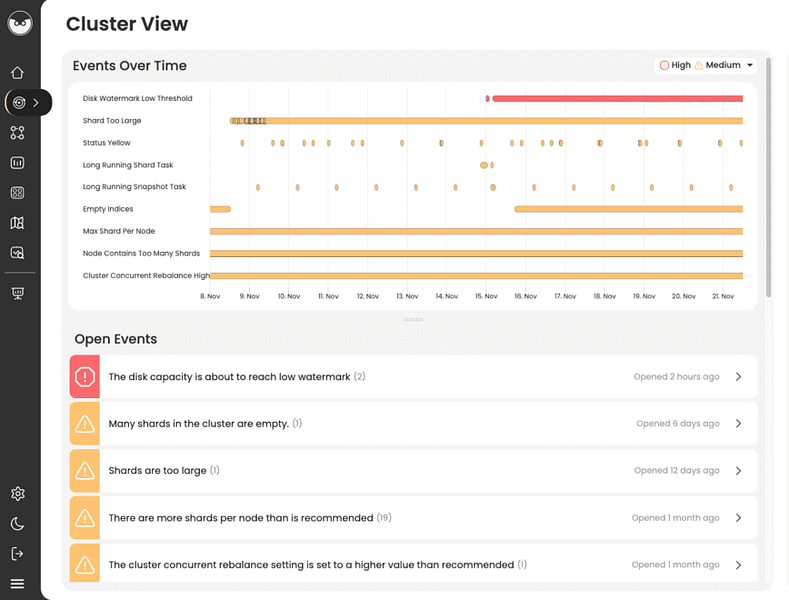Opster Team
Last updated: Oct 25, 2022
| 1 min readIn addition to reading this guide, we recommend you run the Elasticsearch Health Check-Up. It will detect issues and improve your Elasticsearch performance by analyzing your shard sizes, threadpools, memory, snapshots, disk watermarks and more.The Elasticsearch Check-Up is free and requires no installation.
To review your snapshot operations and repository settings, you can run the Elasticsearch Health Check-Up. It will also help you detect other important configurations that can improve your performance and prevent future issues.
Overview
An Elasticsearch snapshot provides a backup mechanism that takes the current state and data in the cluster and saves it to a repository (read snapshot for more information). The backup process requires a repository to be created first. The repository needs to be registered using the _snapshot endpoint, and multiple repositories can be created per cluster. The following repository types are supported:
Repository types
| Repository type | Configuration type |
|---|---|
| Shared file system | Type: “fs” |
| S3 | Type : “s3” |
| HDFS | Type :“hdfs” |
| Azure | Type: “azure” |
| Google Cloud Storage | Type : “gcs” |
Examples
To register an “fs” repository:
PUT _snapshot/my_repo_01
{
"type": "fs",
"settings": {
"location": "/mnt/my_repo_dir"
}
}Notes and good things to know
- S3, HDFS, Azure and Google Cloud require a relevant plugin to be installed before it can be used for a snapshot.
- The setting, path.repo: /mnt/my_repo_dir needs to be added to elasticsearch.yml on all the nodes if you are planning to use the repo type of file system. Otherwise, it will fail.
- When using remote repositories, the network bandwidth and repository storage throughput should be high enough to complete the snapshot operations normally, otherwise you will end up with partial snapshots.
Related log errors to this ES concept
Find & fix Elasticsearch problems
Opster AutoOps diagnoses & fixes issues in Elasticsearch based on analyzing hundreds of metrics.
Fix Your Cluster IssuesConnect in under 2 minutes

Arpit Ghiya
Senior Lead SRE at Coupa





